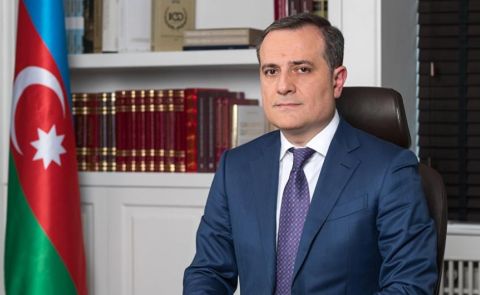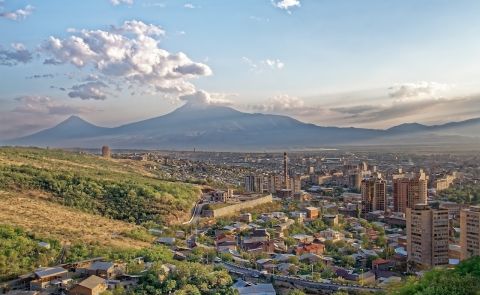
The latest list of political detainees in the North Caucasus

According to human rights campaigners in Russia, the country now has at least 420 political prisoners and 33 of them are in the North Caucasus.
Memorial, a human rights organisation, produced a list of political prisoners around Russia. The current number of political prisoners in Russia rivals that of the late Soviet Union, prior to Mikhail Gorbachev, the Soviet Union's penultimate leader, release of political prisoners.
Political detainees have been placed in jail for a variety of reasons. According to Memorial, the majority of the 33 have been held in connection with the "practice of the right to freedom of religion."
Memorial emphasised that the list is not complete. They only labelled people as "political prisoners" after conducting a "thorough investigation" into their criminal cases. According to Memorial's study, "the true number of political prisoners and other individuals imprisoned for political reasons is certainly substantially higher."
Ingushetia
Ten of the 33 political detainees are natives of the Republic of Ingushetia. The imprisonment of eight of them is linked to large-scale demonstrations and skirmishes with police in Ingushetia in 2018 and 2019, in relation to the Chechen-Ingushetia boundary delineation agreement.
Protest leaders suspected of organising the violence, including the area's former Interior Minister, are imprisoned in pre-trial detention canters in the Stavropol region.
Dagestan
Abdul-Mumin Hajiyev, a journalist for the Dagestan independent daily Chernovik, is perhaps the most well-known of the political prisoners in the North Caucasus.
Hajiyev has been in custody since June 16, 2019 and is charged with funding terrorism. According to Hajiyev and his colleagues, the criminal prosecution is an attempt to stifle Hajiyev's journalistic work, as well as Chernovik's activity in general.
Hajiyev filed a lawsuit with the European Court of Human Rights in December 2019, alleging unlawful persecution by Russian authorities. Amnesty International and Reporters Without Borders have also called for his release. The North Caucasus Military District Court in Rostov-on-Don is now hearing Hajiyev's case.
Four practicing Muslims and four Jehovah's Witnesses are among the other political prisoners in Dagestan, according to Memorial, who have been persecuted for their beliefs. Russian authorities have designated Jehovah's Witnesses as an "extremist organisation," and its operations in the nation are outlawed.
Chechnya
Memorial's roster of political prisoners includes eight Chechens. Five of them are Muslims who, according to human rights groups, are being prosecuted for "exercising their right to religion," including the three Tekilov brothers, who were convicted of allegedly planning a terrorist assault.
Saleh Magomed and Ismail Isaev, brothers accused of 'membership in illegal armed organisations,' have also been identified by Memorial as political prisoners. The two brothers' arrest has been related to their homosexuality and Telegram criticism of government officials, according to Memorial. The two men were kidnapped from a Russian LGBT network shelter in February of this year.
Salman Tepsurkaev, the former moderator of the 1ADAT Telegram channel, which was renowned for its criticism of the Chechen government, has been added to the list of political detainees. Tepsurkayev was kidnapped in September, and a video purporting to show him being sexually assaulted was quickly shared online.
The European Court of Human Rights ruled Russian authorities accountable for Tepsurkaev's kidnapping and torture on October 19. His present whereabouts, as well as whether he is still alive, are unknown.
Kabardino-Balkaria
Rasul Kudayev, a Kabardino-Balkaria native, is the only North Caucasian political prisoner on Memorial's list to have received a life sentence. Kudayev was convicted of being guilty of taking part in an armed attack in Nalchik on October 13, 2005, that killed 145 persons, including 15 civilians.
Kudayev was freed from American detention centre at Guantanamo Bay a year before his capture by Russian police in 2005. He was held without charge for a long time.
Memorial believes Kudayev's convictions are politically motivated, citing his prior detention in Guantanamo Bay as evidence of a "foreign link" to the 2005 Nalchik events. In addition, Memorial quotes a number of witnesses who corroborated Kudayev's alibis for the events in which he was suspected of taking part.
See Also


Nordic-Baltic Delegation Meets Armenian Leaders to Discuss Regional Cooperation and Peace

Azerbaijan Strengthens Energy Partnerships with Multiple Countries

BP Strengthens Presence in Azerbaijan’s Offshore Energy Sector

Netanyahu’s Letter to Aliyev: Mutual Trust, Solidarity Following Hamas Attacks, Facilitating Dialogue Between Israel and Türkiye

